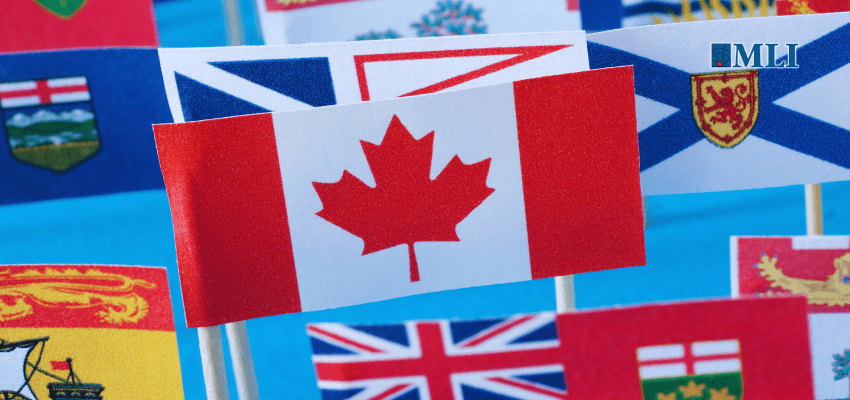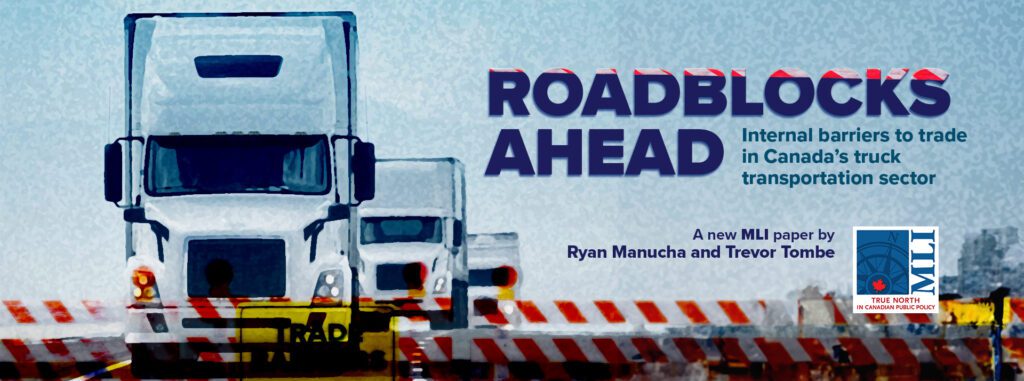This article originally appeared in the Hub.
By Trevor Tombe, November 28, 2024
Climate policy in Canada has always been contentious. In a decentralized federation like ours, disagreements between the provinces and the federal government are inevitable.
But in recent years, Ottawa has taken an aggressive approach, often setting federal requirements that encroach on areas of provincial jurisdiction. This has invited unnecessary conflict. There are better ways.
In a recent piece for The Hub, David McLaughlin rightly calls for “collaboration, not coercion” between Canada’s many governments. He suggested that Ottawa reach explicit bilateral agreements with each province, funding tailored projects and initiatives. It’s an interesting idea, and a “new climate federalism,” as David calls it, could be complemented with an even simpler approach.
To move beyond the federal government negotiating over specific provincial actions, Ottawa could establish a financial transfer program that incentivizes provincial emissions reduction without getting involved in the details.
The federal government has a long history of using funding incentives to encourage provincial action without micromanaging. The growth of provincial health care and education programs after the Second World War, for instance, was driven by federal funding. Today, federal dollars continue to support health and social programs, while provinces are entirely free to operate these services as they see fit, subject only to a few high-level conditions.
Climate policy could benefit from a similar approach.
Why subsidize emissions reductions?
There are a few reasons a federal transfer for emissions reductions may make sense.
Provinces control many areas central to emissions reduction, such as transportation, waste management, electricity generation, and public buildings. Provinces are also responsible for emissions within their own operations. Federal funding tied to emissions-reduction outcomes could help provinces tackle these challenges on their own terms.
Reducing emissions can also have unintended financial consequences for governments. Lower gasoline consumption, for example, cuts into an important source of funding: fuel taxes. These taxes generate roughly $16 billion for Canadian governments at all levels, with provinces collecting about $10 billion of that. Concern over lost revenues might understandably deter provincial actions.
But most importantly, the benefits of emissions reductions extend beyond provincial borders—indeed, mostly beyond Canada itself. As a result, provincial governments may take less action than they “should.” A subsidy would help tip the cost-benefit scale towards more action while leaving provinces fully autonomous in deciding how (and whether) to act.
Green equalization?
This idea might sound like the “green equalization” proposed by the Bloc Québécois in the last election, but it’s nothing of the kind. The Bloc wanted to see provinces with high emissions literally pay provinces with low emissions. It was not a serious idea.
However, incorporating greenhouse gas emissions into the current equalization program is not far-fetched.
Equalization aims to top up provinces with limited revenue-raising capacity, and emissions are linked to that capacity. Carbon taxes, for example, are a way to generate revenue from emissions, and even in jurisdictions without carbon taxes, there are regulatory systems that levy charges on industrial emissions.
As emissions decline, provincial fiscal capacity falls with it. The current equalization formula doesn’t account for this—but it could.
This would only be relevant for have-not provinces, though.
A new Canada climate grant
A broader and simpler option might be to mimic the incentive structure of a carbon tax but with subsidies instead of penalties. A carbon tax imposes a cost on every tonne of emissions, creating an incentive to reduce emissions and avoid the tax. A carbon subsidy flips this logic: for every tonne of emissions avoided, there’s a payment. The incentive effect is the same, but the political dynamics are different.
Federal transfers to provinces could implement such a system. For example, the federal government could establish an “emissions allowance” per capita, benchmarked to historical levels, focused on areas not already covered by provincial industrial pricing systems.
In 2005—the baseline year for Canada’s emissions targets—national emissions were roughly 18 tonnes per person, with about 12 tonnes per capita attributable to sectors outside heavy industry and oil and gas (which are already covered by provincial carbon pricing systems, like Alberta’s TIER).
The further a province’s emissions fall below this benchmark, the more funding it receives.
If Ottawa offered $80 per tonne abated, a province that reduced emissions by 1 megatonne would receive $80 million. This could add up quickly, and would obviously strain federal finances, but it could be integrated into a broader reform of federal transfers, which already exceed $100 billion per year. We could also eliminate the many federal funding programs that might be less effective, which easily amount to several billion dollars.
We wouldn’t need to spend more—just allocate existing funds differently.
This approach would also reward provinces that took steps in the past. Manitoba has vocally opposed carbon pricing even under its current NDP government for precisely the reason that they want credit for their actions taken in the past.
Not perfect, but worth considering
A new transfer program wouldn’t be perfect. Some provinces would naturally receive more than others, potentially creating friction, just as equalization does today. Federal funding might also prompt questions about how provinces spend the money, which is why David suggested clear accountability agreements.
Ultimately, though, it’s the incentives that matter—transfers that rise as emissions fall is all we’d need.
There are many details to work out, and perhaps these ideas are nonstarters. But there’s no shortage of ways to design a financial transfer that respects provincial autonomy while incentivizing climate action. It’s an idea worth exploring. The right mix of incentives could help Canada lower emissions and strengthen federal-provincial collaboration in the process.







